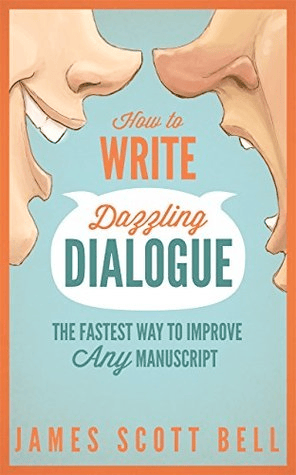Welcome back to this beloved January tradition. I am going to quickly summarize and comment on every book I read during 2024. If you follow my ChangeLog series, you already know all of them. If not, you are welcome. :)
First, a couple of general stats. In 2024, I read 32 books, divided into 9 fiction books and 23 non-fiction ones. Compared to 2023, I read 3 fewer books, but I surprisingly cut more than a half the amount of fiction books (in 2023, they were 19). Maybe because I watched WAY MORE movies? I am not sure, but it is funny to spot such trends.
In the fiction genre we have: 1 noir book, 2 fantasy book, 4 science fiction books (of which, 3 are Star Trek novels), 1 graphic novel and a generic fiction one I don’t know how to define.
On the non-fiction section, we have the usual bunch of writing and philosophy books. But we can also see a book of software engineering work, one about board games, and a couple of biographies.
Around the World in 80 Games by Marcus du Sautoy

It was a fascinating book, full of board games and personal stories and math. I mostly enjoyed it. Among the “bad” parts, I’d say that some game explanations remained very confusing. I would have enjoyed a bit more diagrams to understand the evolution of a game.
The Big Sleep by Raymond Chandler

This is the first appearance of hard-boiled detective Philip Marlowe and a classic of the noir genre. I liked it. It is more complex than I expected. I think I would have enjoyed it more if I were more fluent in early 1930s slang. It had been a long time since I needed to stop every once in a while to look in a dictionary to understand what they were talking about.
Kill It With Fire by Marianne Bellotti

Kill It With Fire is a good book about legacy software modernization. It has a good deal of practical advice, examples, and suggestions. I think it is missing something, but I am unsure what. I would have liked it to go more in-depth, more in practice, and more in the software part. Instead, as Bellotti says, the modernization of legacy systems is a people challenge, not a software challenge. You need to manage people, manage expectations, and keep up the momentum and the morale of the developers and managers.
How Hitchens Can Save the Left by Matt Johnson

Hitchens inspired and continues to inspire my thoughts, even when I don’t agree with him. This is a detailed biography of his political thoughts and why it would have been fun to have him around in these troubled times. I agree. It would have been fun.
Stolen Focus by Johann Hari

Why, in modern days, do we find it so hard to focus on anything serious? This is one of the many books that try to answer this question. It is probably the most complete and in-depth one. However, it is virtually divided into two parts: a first part that reads like a novel, which is very interesting and inspiring, and a second part in which the author tries too hard to read into things. The good thing is that he acknowledges it.
Zen in the Art of Writing by Ray Bradbury

This is a collection of essays about writing that Bradbury wrote over the decades of his career. There are some gold nuggets in there, but often Bradbury sounds like a madman (I think geniuses sounds like that most of the time).
Slow Productivity by Cal Newport

It follows the typical American approach to non-fiction, featuring many anecdotes intended to illustrate the author’s points. However, these anecdotes often feel cherry-picked. For instance, claiming that betting on oneself and taking professional risks is beneficial by writing “look at all those successful people who did that!” is unfair because it is an obvious survivor bias. Anyhow, remove the uninteresting anecdotes and there is some inspirational story and good information. But probably if you follow Cal Newport podcast, you already have all of that. And more.
Deep Freewriting by Stephen Lloyd Webber

It is a weird book that is both highly outrageous and remarkably interesting. It describes “freewriting” as a writing technique in which you slowly write without ever looking back. Trust me, it may feel weird or unoriginal, but it is more useful than that. Of course, I would appreciate more practical examples from a book such as this.
On Having No Head by Douglas E. Harding

It is considered a landmark book in non-dual zen practice. It is a very complicated book that requires a good background on the topic.
Star Trek: Vanguard: Declassified by David Mack, Dayton Ward, Marco Palmieri and Kevin Dilmore

A collection of short stories in the Vanguard universe. They are mostly prequels, but the last one finally moves the story forward. I have problems with prequels in the middle of a saga. The main issue is that I know what the characters will do later, so it is really hard to take seriously the “suspense” and “mystery” they try to build up in the prequels.
How to Tell a Story by Philip Freeman

It is the translation of Aristotle’s Poetics. It is a great book, and it is surprising to see how much advice from modern writing books you can find in a booklet dating thousands of years ago.
The Lost Cause by Cory Doctorow

If you want a book with a surprisingly weird amount of ‘people eating,’ boring government activity, flat, stereotypical, and pollyannaish characters, and a lot of annoying preaching, that’s the book for you.
(I am sorry, I really didn’t like it. 🙁)
Faster Than Light by Robert J. Nemiroff

It is a nice book describing the paradoxes of FTL traveling such as explaining why shadows or laser pointers can move faster than light (even though, obviously, they cannot send information faster than light). It was a fascinating read, and I liked that the book is written as a sequence of questions aimed at uncovering our wrong assumptions on how ‘faster than light’ movement works. However, every question has a ‘dad joke’ answer that may get annoying very fast. I get that the author wanted to lighten up a heavy topic for the general public, but science is already pretty interesting as it is.
How to Be a Leader by Jeffrey Beneker

Plutarch was and is a real deal. Another beautiful entry of the amazing Princeton’s series “Classical Wisdom for Modern Readers.” In this volume the author explores the topic of Politics with a selection from Plutarch’s “To the Uneducated Leader”, “Precepts of Statecraft” and “Should an Old Man Engage in Politics?”.
I think everything Plutarch says here is still useful for modern-day politics. Somehow, we’ve stopped thinking and caring about good leaders. We’ve decided it’s okay to have amoral assholes in power.
Marvel 1602 by Neil Gaimain and Andy Kubert

This nice story, written by Neil Gaiman and drawn by Andy Kubert, imagines the classic Marvel superheroes in 1602. Fortunately, the story is more interesting than “let’s just put character X in a Counter-Reformation setting.” A comic worth reading, especially for 12€.
Star Trek: Vanguard: What Judgments Come by Dayton Ward and Kevin Dilmore

This is the seventh and second-to-last chapter of the Star Trek: Vanguard series. It is a much weaker, transitory book. Diego Reyes’ “mission” on the Omari-Ekon was cool. The rest was uninspired. And I still don’t understand why we had to spend all that time on the Paradise City storyline.
How to Think About War by Johanna Hanink

Another wonderful entry from Princeton’s Ancient Wisdom for Modern Readers series. This time, we have six selections from Thucydides’ History of Peloponnesian War. An important reflection about war, still current, after over 2000 years.
(I wrote extensively about this book on my Italian philosophy blog.)
How to Write Dazzling Dialogue by James Scott Bell

Books about writing keep me in the zone when I am writing, and the Scott Bell ones are great for that (plus, I got an extensive list of movies to watch). A solid book on Dialogues.
Sapiens by Yuval Noah Harari

I have to say that I am very puzzled. The book is interesting and full of factual evidence, but Harari strings them together in a coherent speculative story in a way that contrast with the factual identity of the book. It is an interesting story, but a story nevertheless. There is a lot of pure, bold speculation presented too much as “facts.” It feels weird.
Ten Things I Learned by Piero Angela

This is a very short book by Piero Angela, the father of all Italian scientific journalists, who died in 2022. I reluctantly have to say that it wasn’t so exciting. It was a repetition of elementary scientific facts accompanied by political commentary. I am probably not in the intended audience. I am far from the “average Joe” regarding the scientific literacy.
A Monk’s Guide to A Clean House & Mind by Shoukei Matsumoto

This is a funny short book. Of course, it feels “too much.” The monk really stresses the parallel between home and the mind. But I liked it, I feel there is some truth in it. After I read it I started to clean a bit more my house first thing in the morning; just 15 minutes but with focus, like a mindfull practice, and I’ve found benefit from it.
Sherlock Holmes and the Art of Reasoning by Massimo Polidoro

Another short book that takes inspiration from the Sherlock Holmes character to explain the property and the capabilities of the human mind. A man like Sherlock Holmes could not exist in reality, but with some practice, we could all get better at being more rational beings.
The Impostor by Javier Cercas

This is a 2014 “novel without fiction” (I really don’t understand this definition, it is just a non-fiction book with a more nuanced style) about Enric Marco Batlle, a man that for a big part of his life convinced everyone that he was a holocaust survivor and anti-fascist fighter during the Spanish Franco’s dictatorship. It is an interesting story, but the book is a bit repetitive.
Legend by David Gemmel

I wanted some old school 80s pulp fiction fantasy. And what a good one this one is! It was great. The book sets very clear and hard stakes from the start and fills the story with a cast of vivid characters. After a slow start, I got glued to the pages. The only flaw is that the ending is a bit too much deus ex machina, but I can close an eye because it was a really cool journey.
The Marvel of Everything by Piero Angela and Massimo Polidoro

Another book by Piero Angela. This book is more interesting, probably because the authors choose to write it as a dialogue, enabling them to delve into more intimate aspects of life.
The Socratic Method by Ward Farnsworth

There is one thing I like about Farnsworth’s books: the precision of the arguments. The books are laid out in a very methodical and precise way that, by itself, provides a lot of clarity on the topic. So what I can say about “precision of the arguments” applied to a book about arguments? It was a great read.
Geniale by Massimo Polidoro

Massimo Polidoro was one apprentice/student of the renowned magician and fraud buster, James Randi. This book, written just after Randi’s death in 2020, is nice a “memoir” of his time with him.
Born Standing Up by Steve Martin

This book focuses on Steve Martin’s early career, on how he became the most popular stand-up comedian of all time and how (and why) stopped doing stand up at the height of his success (roughly speaking, early 80s).
How to Do the Right Thing by Robert A. Kaster

Another entry of this beautiful series. This time, it is an anthology of Seneca’s passages on the topic of “doing the right thing.” Here, the format is different: instead of integral passages from which we derive a topic, here we have a salad of concepts from multiple works organized around a topic. I liked this less. It didn’t feel like reading the original material.
Star Trek: Vanguard: Storming Heaven by David Mack

The final chapter of the Star Trek: Vanguard ended with some disappointment. I don’t want to spoil too much, but my greatest problem was the anticlimactic resolution of the shedai. And, it was a couple of books where Diego Reyes ends up as a far away spectator, and it is a shame because he was a great character.
The Ghost Cat by Alex Howard

It is a short book I bought this summer in Edinburgh. It tells the story of significant events in Edinburgh’s history from the past century through the eyes of a Victorian cat. I am a bit puzzled because it is both charming and not well executed. I would have preferred more “meat” because the stories are disconnected and fell flat, as if they were just scenes we witness through the window of a moving car. On the other hand, I am still a bit sweet-sad about the end, so there may be something there.
Extra: The Fellowship of the Ring

In 2024, I started my re-read of The Lord of the Rings. I completed only the first book so far, but a good summary must include everything!




Comments 🦋
You can use your Bluesky account to reply to this post. Learn how this is implemented here.